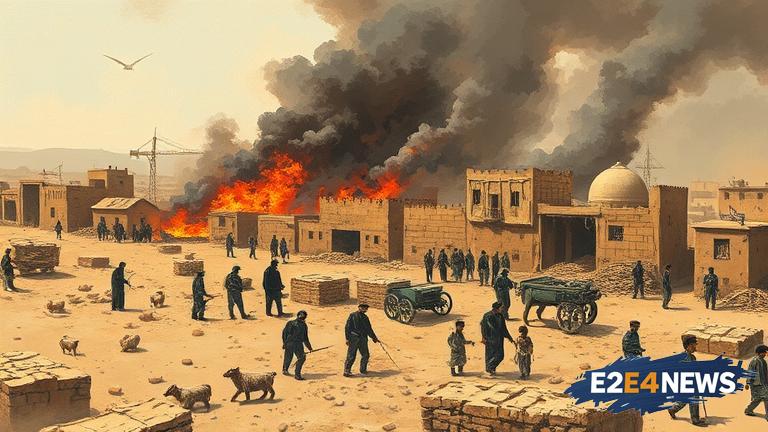The Middle East has been plagued by wars and conflicts for decades, and the humanitarian crisis in the region continues to worsen. The ongoing conflicts in countries such as Syria, Yemen, and Libya have led to a massive displacement of people, with millions forced to flee their homes in search of safety. The resulting hunger crisis has affected millions of people, with many struggling to access basic necessities like food and water. The situation is particularly dire in Yemen, where a civil war has been raging since 2015, and the country is on the brink of famine. The conflict has destroyed the country’s infrastructure, including its agricultural sector, leaving many without access to food. The United Nations has warned that the situation in Yemen is catastrophic, with over 20 million people in need of humanitarian aid. The crisis is not limited to Yemen, as other countries in the region, such as Syria and Libya, are also struggling to cope with the aftermath of conflict. The Syrian civil war, which began in 2011, has led to the displacement of over 6 million people, with many forced to live in refugee camps. The conditions in these camps are often dire, with limited access to food, water, and healthcare. The Libyan conflict, which began in 2011, has also led to a humanitarian crisis, with many people struggling to access basic necessities. The international community has been criticized for its response to the crisis, with many arguing that more needs to be done to address the root causes of the conflict. The United States, in particular, has been accused of exacerbating the crisis through its military interventions in the region. The European Union has also been criticized for its handling of the crisis, with many arguing that it has not done enough to provide humanitarian aid to those in need. Despite the challenges, there are many organizations and individuals working to address the crisis, including the United Nations, non-governmental organizations, and local communities. These efforts include providing food and water to those in need, as well as supporting local agriculture and economy. However, more needs to be done to address the root causes of the conflict and to provide long-term solutions to the crisis. The international community must work together to find a peaceful resolution to the conflicts in the region and to provide the necessary support to those affected. This includes increasing humanitarian aid, supporting local economies, and promoting sustainable agriculture. The crisis in the Middle East is a complex and multifaceted issue, and it will require a comprehensive and sustained response to resolve. The situation is dire, but there is still hope for a better future for the people of the region. With the right support and assistance, it is possible to rebuild and restore the communities that have been affected by the conflict. The international community must act now to address the crisis and to provide a brighter future for the people of the Middle East. The consequences of inaction will be catastrophic, and it is imperative that we take immediate action to address the crisis. The world cannot afford to stand by and watch as millions of people suffer from hunger and displacement. We must work together to find a solution to the crisis and to provide the necessary support to those in need. The time for action is now, and we must not fail the people of the Middle East.





